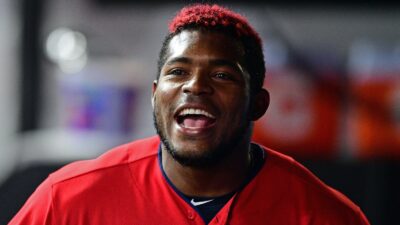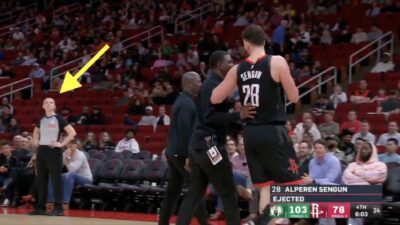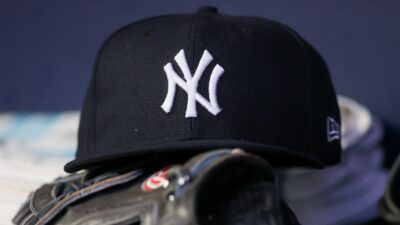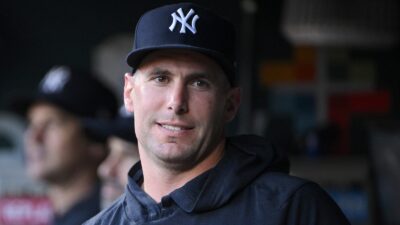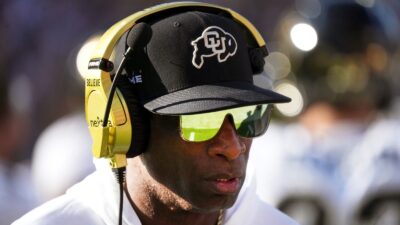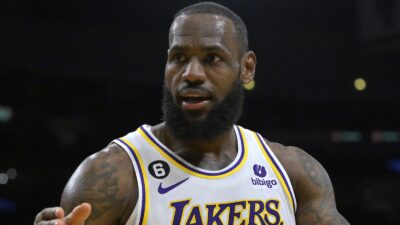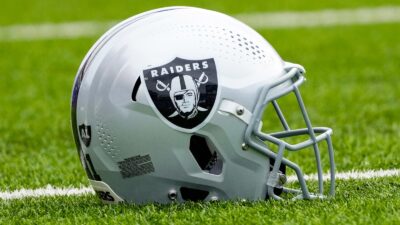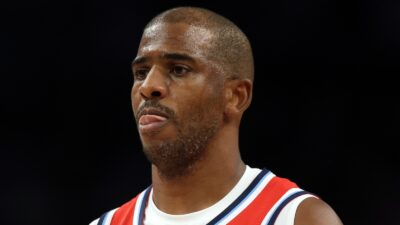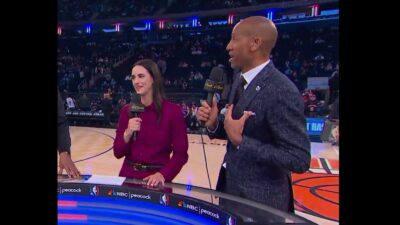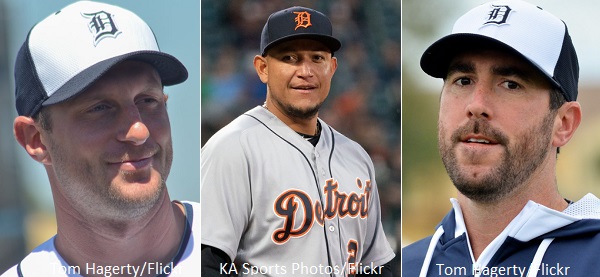
What do the names Miguel Cabrera, Justin Verlander, Max Scherzer, J.D. Martinez, Victor Martinez, and David Price all have in common? All of them are among the leading stars of their generation. All have been All-Stars. Some are future Hall-of-Famers. And all of them wore a Detroit Tigers uniform at some point between 2011 and 2014, but none of them ever won a World Series wearing the Olde English D.
Everyone recognized how good those Tigers teams were then. They won a total of 366 games over that four-year span, made three consecutive ALCS appearances from 2011 through 2013, and won four straight AL Central titles. Those four teams produced three AL MVPs plus another second-place finisher, as well as two AL Cy Young winners.
But two stats from that era stand out above all the others: zero World Series titles and zero World Series games won.
Time has only heightened the appreciation of those teams’ talent and the amazement that they couldn’t break through and win some rings. Their architect, GM Dave Dombrowski, is one of baseball’s most respected executives, and it’s no coincidence that he went on to win a World Series running the Red Sox after departing the Tigers.
Cabrera will go down as one of the greatest hitters of all time. Verlander, who won an MVP and Cy Young in Detroit, has gotten even better since joining the Houston Astros and looks to be in great shape to add a second Cy Young to his collection. Scherzer, another Cy Young winner in Detroit, has won two more in the NL with the Washington Nationals. J.D. Martinez has become one of the game’s premier sluggers. Rick Porcello, never even a playoff starter on those Tigers teams, went on to win a Cy Young with Boston in 2016. In fact, all four members of the Tigers’ 2014 playoff rotation ultimately won a Cy Young in their career. Yet one, Porcello, never even got to pitch in the series as the Tigers were swept out of the ALDS by the Baltimore Orioles.
How did this group of players never even win a World Series game, much less a title? There are a lot of reasons. Some of them were obvious, some of them were more subtle, and some of them were at odds with the conventional wisdom both then and now. All of them, however, played a small role in those teams’ inability to reach baseball’s summit despite always being tantalizingly close to it.
Looking back on things, these are our best explanations for how those great Tigers teams fell short.
******
THE BULLPEN
If you ask most neutral observers what cost the Tigers a championship, they would probably blame the bullpen. They’re not necessarily wrong to, but the reasons for the pen’s failures are a bit more nuanced than some might remember.
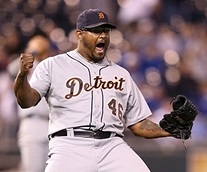 Part of the reason the issue has been exacerbated in the minds of many is that the Tigers never had that elite fireman they could bring in to shut down a game. That does not mean they never had good relievers. In 2011, the first year of Detroit’s four-year run atop the AL Central, closer Jose Valverde didn’t blow a save all season. Joaquin Benoit could be prone to giving up home runs, but the rest of his numbers were excellent. Slider specialist Al Alburquerque was a revelation for the 2011 team, while veteran reliever Octavio Dotel added much-needed depth to the 2012 team. The 2011 team lost a pair of ALCS games in extra innings en route to elimination, and Game 4 of the 2012 World Series was lost in extra innings as well. Neither of those two series, however, saw the Tigers’ bullpen blow a lead.
Part of the reason the issue has been exacerbated in the minds of many is that the Tigers never had that elite fireman they could bring in to shut down a game. That does not mean they never had good relievers. In 2011, the first year of Detroit’s four-year run atop the AL Central, closer Jose Valverde didn’t blow a save all season. Joaquin Benoit could be prone to giving up home runs, but the rest of his numbers were excellent. Slider specialist Al Alburquerque was a revelation for the 2011 team, while veteran reliever Octavio Dotel added much-needed depth to the 2012 team. The 2011 team lost a pair of ALCS games in extra innings en route to elimination, and Game 4 of the 2012 World Series was lost in extra innings as well. Neither of those two series, however, saw the Tigers’ bullpen blow a lead.
The oft-remembered moment of those runs was Benoit giving up a game-tying grand slam to David Ortiz in Game 2 of the 2013 ALCS, a game the Tigers would go on to lose. Several factors led to that moment. Three different pitchers put runners on before Benoit stepped into the eighth inning of Game 2. The key moment of the frame was Drew Smyly’s walk of Jacoby Ellsbury to put two on with one out. Smyly, a converted left-handed starter, had become an excellent reliever for Detroit that year, posting a 2.37 ERA and striking out 81 in 76 innings — all while walking only 17. He was ahead of Ellsbury 1-2 in that plate appearance before throwing three consecutive balls. Had Ellsbury been retired, the Tigers would have faced a rather manageable one on, two out situation with a four-run lead, and two more Red Sox would have had to reach to even bring Ortiz to the plate. The inning gained momentum from there, though, before Ortiz turned in his iconic moment. That was the result of the typically reliable Benoit leaving a changeup out over the plate. Benoit had a 2.01 ERA that season, and the fact that he became the poster child for years of bullpen struggles was unfair to him.
2014 was the year the bullpen well and truly cost the Tigers. It’s a misconception that Dombrowski never tried to address the bullpen, as he did so aggressively during the 2013 offseason. Joba Chamberlain was brought in as the setup man, while Joe Nathan, owner of a 1.39 ERA with the Texas Rangers the year before, was the splashy addition to close.
Neither worked. Chamberlain posted a solid first half, but his ERA after the All-Star break was 4.97. Nathan was never good, with age seemingly catching up to him overnight. He posted a 4.81 ERA which included a number of high-profile meltdowns. The fans quickly turned on him, and he didn’t endear himself in a series of instances where he seemed to blame teammates for his own failures. He lost the fans for good when he made an inappropriate gesture seemingly directed at the fans for their hostile reaction after a shaky ninth inning in August. Dombrowski knew it wasn’t good enough and traded for Joakim Soria in July. Ironically, one of the players Dombrowski gave up in that deal, Corey Knebel, would go on to become an All-Star closer with the Milwaukee Brewers three years later.
Predictably, that patchwork bullpen failed in October. Chamberlain inherited a 6-3 lead in the 8th inning of Game 2 of the ALDS against the Baltimore Orioles. After getting the first out, he hit Adam Jones and allowed back-to-back singles, making it 6-4 with two on and one out. Manager Brad Ausmus summoned trade deadline acquisition Soria, but he had not been sharp since moving to Detroit. After issuing a walk to load the bases, Soria allowed a bases-clearing double to ex-Tiger Delmon Young. The Orioles won 7-6, and the Tigers were ultimately swept.
A HOT-AND-COLD OFFENSE THAT WENT DORMANT AT THE WRONG TIME
In a certain sense, the Tigers were ahead of their time. From 2011 through 2013 especially, they were reliant on the home run for a lot of their offense, predicting the trend that has taken over the sport in recent years. With a lineup that boasted Cabrera, Victor Martinez, Prince Fielder, and later J.D. Martinez, it made sense.
But the playoffs are a different animal, and in stretches, the Tigers failed to score a lot of runs and leaned hard on their starting rotation. They scored 11 runs in the first four games of the 2012 ALDS before breaking out with six in the decisive Game 5. They scuffled for runs in the 2012 ALCS, but were propped up by Detroit’s pitchers dominating the New York Yankees, allowing just six runs in four games as the likes of Robinson Cano and Alex Rodriguez went missing. It caught up with Detroit in the World Series, when they scored only six runs in four games against the Giants. They were shut out in Games 2 and 3, started by Madison Bumgarner and Ryan Vogelsong. The trend continued into 2013 — three runs or fewer in four of five ALDS games against Oakland, and 18 runs in six games against Boston.
Prince Fielder, signed prior to the 2012 season after Victor Martinez went down with a season-ending knee injury during offseason workouts, became the villain for this lack of productivity. While far from the only offender, Fielder went 18-for-92, a .196 average, across the 2012 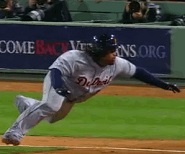 and 2013 playoffs with only one home run. He was also responsible for a massive baserunning blunder that helped run the Tigers out of a potentially big inning in the decisive sixth game of the 2013 ALCS. Combine that with his $214 million salary and some dismissive comments after Detroit’s 2013 elimination that came off as flippant to some fans, and few were sorry to see him go when he was traded after the season.
and 2013 playoffs with only one home run. He was also responsible for a massive baserunning blunder that helped run the Tigers out of a potentially big inning in the decisive sixth game of the 2013 ALCS. Combine that with his $214 million salary and some dismissive comments after Detroit’s 2013 elimination that came off as flippant to some fans, and few were sorry to see him go when he was traded after the season.
THE WORLD SERIES LAYOFF
In 2006, the Detroit Tigers had to wait a full week to start the World Series after they swept the Oakland Athletics. The NLCS went seven, and by the time the Tigers took the field against the St. Louis Cardinals, they looked flat and lifeless. They lost in five games.
In 2012, the Tigers faced the same scenario. Their sweep of the Yankees, combined with a seven-game NLCS, left the Tigers sitting for six days before the series began. Manager Jim Leyland tried to combat this with a series of simulated games, but the result was largely the same. Verlander and the Tigers gave up eight runs in Game 1, never got going offensively, and were swept by the Giants.
Verlander himself has cited the World Series layoff as the biggest reason the Tigers failed to win the World Series in both 2006 and 2012.
INJURIES
On October 3, 2012, Miguel Cabrera sealed the American League Triple Crown, becoming the first batter since 1967 to accomplish the feat. His numbers were astounding that year: a .330 batting average with 44 home runs and 139 RBIs.
What many forget is his 2013 campaign was shaping up to be even better. At the end of play on August 25 of that year, Cabrera was hitting .360 with 42 home runs and 128 RBIs, putting him on pace to obliterate the numbers that had won him the Triple Crown the year before. In one ten-day stretch in August, Cabrera hit four home runs that either tied the game or put the Tigers ahead in the 8th inning or later. One of them was a walk-off, and two of them, off Mariano Rivera, came within a three-day span.
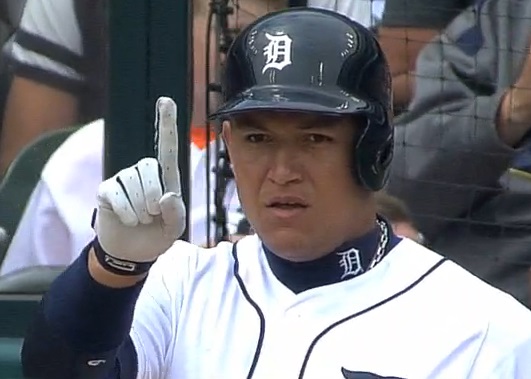
Something happened though that would have massive impacts on the remainder of the season. In early September, Cabrera suffered a groin injury that was later diagnosed as a Grade 2 or 3 strain, indicating the most severe tear possible — one that would require offseason surgery.
Cabrera kept playing, but the dropoff in his numbers was obvious. From the time of the injury to the end of the regular season, Cabrera still hit .305, but 16 of his 18 hits were singles. By the postseason, he was swinging with an uncharacteristic two-handed swing that was clearly meant to reduce strain on the lower half of his body. He was essentially hitting baseballs with pure upper body strength, and it was a minor miracle that he homered twice that postseason — one a massively significant shot in Game 5 of the ALDS.
Still, there was no hiding the pain. Cabrera hit .262 with only two extra-base hits during the 2013 postseason. Combined with Fielder’s disappearing act, it was a fatal blow for the Detroit offense.
Cabrera’s injury was the most major one that derailed a promising postseason, but not the only one. Verlander struggled to recover from offseason core muscle surgery in 2014 and saw his ERA balloon to 4.54. That alone made the Tigers’ daunting rotation of Scherzer, Price, Porcello, and Verlander a little less intimidating on paper, as Verlander was nowhere close to his peak as a pitcher.
BAD LUCK AND GOOD OPPONENTS
The MLB postseason can be a crapshoot. One bad call can change an entire series, and one big hit can define a season. The Tigers did benefit from this at times — a blown call at second base in the pre-replay era of 2012 opened the door for a two-run inning in Game 2 of the 2012 ALCS and helped the Tigers sweep. But take the 2012 World Series opener in San Francisco. Verlander vs. Barry Zito was a mismatch on paper, but Verlander struggled, Pablo Sandoval homered three times, and Zito pitched a gem, setting the tone for the series.
There was no better example of what plagued the Tigers than a few occasions in the 2013 ALCS. Ortiz’s grand slam was the big one — the seminal moment that likely cost Detroit the series, one that has entered into baseball lore. It’s no coincidence that it was hit by one of the most clutch hitters ever.
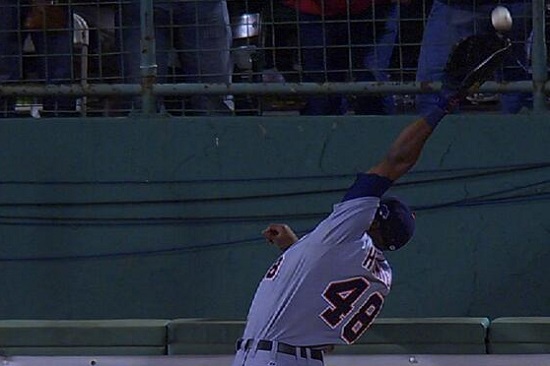
Still, right fielder Torii Hunter was inches from making the catch as he flipped into the bullpen but simply couldn’t pull it off. It was far from the only game-changing moment of the series, as Cabrera ran through a stop sign with two out in the first inning of Game 5. He would be thrown out at home to end the inning instead of setting up a bases-loaded situation for second baseman Omar Infante.
One inning of the series stands out above the rest, save for the Ortiz home run. Scherzer took the mound in the bottom of the seventh inning of Game 6 at Fenway Park, with the Tigers clinging to a 2-1 lead. The Red Sox got a leadoff double, but after a strikeout, the Tigers were eight outs away from forcing a Verlander-pitched Game 7. Scherzer proceeded to walk Xander Bogaerts on a borderline 3-2 pitch that many Tigers fans still swear should’ve been called strike three, putting runners at first and second with one out. One batter later, reliever Drew Smyly got Jacoby Ellsbury to hit a ground ball up the middle to sure-handed shortstop Jose Iglesias, the team’s best defensive infielder. It was not a routine play, but one that should have been made — and Iglesias bobbled it. It cost the Tigers one out and possibly even two. The next batter, Shane Victorino, hit a grand slam, putting the Red Sox ahead 5-2 and effectively ending the series.
It was a microcosm of what cost the Tigers in that series — bad luck, a bullpen that couldn’t close things out, and an ill-timed miscue. The Tigers would never come as close again.
INEXPERIENCE
The Tigers’ first and last playoff runs were both derailed, in part, by inexperience. The 2011 team isn’t regarded as a missed opportunity in the same way the 2012 and 2013 teams were. It was a flawed team whose key parts were either past their prime or had not yet come of age. While Verlander was the best pitcher in the AL that year and trade deadline addition Doug Fister was a huge part of their success, Scherzer and Porcello both posted ERAs over 4, while Cabrera and Victor Martinez carried the offense. That team just did not have the right parts.
The 2014 team was a different story. Most of the players on it were battle-tested — though Fister and Fielder were dealt after 2013, new additions Price and Ian Kinsler both had ample playoff experience. The only one who didn’t was the manager.
Leyland retired after the 2013 loss. While his on-field moves left the door open to second-guessing, he was known as a players’ manager who was also good at maintaining clubhouse harmony. The Tigers took a massive risk replacing him with longtime MLB catcher Brad Ausmus, who had no MLB experience as a coach or manager.
For a while, it seemed the perfect fit. The 2014 Tigers started 27-12 and jumped to a seven-game AL Central lead by May 18. Within a month, that lead had evaporated, as the team went ice cold and fell behind the surging Kansas City Royals. The Tigers shook it off and got hot again, reopening a 7.5 game lead over the Royals on July 12, but trudged to the finish line after that, winning the division by one game. Ausmus came under criticism for his bullpen management, the rationale behind some of his decisions, and a perception that his style was simply too relaxed and laid-back. The sense of urgency never seemed to be there, and the first-year manager at times seemed overwhelmed in a clubhouse with veteran personalities and high expectations. It was far from the main reason they lost, but Ausmus never inspired confidence as the team’s manager. When his tenure ended after the 2017 season, there were reports that he had lost the respect of and authority over the team’s veteran players owing to his passive nature.
******
The most successful 21st Century era of Tiger baseball ended in 2014, when the Orioles swept Detroit out of the ALDS. Scherzer left as a free agent that winter, and Verlander missed much of 2015 with an injury the team initially misdiagnosed. The bottom fell out, the team sold at the deadline, and Dombrowski was relieved of his duties shortly after. He quickly landed with the Boston Red Sox, where he built the 2018 World Series winners with several players he’d originally acquired with Detroit. David Price, Rick Porcello, and J.D. Martinez played major roles, while Ian Kinsler played a bit part. Verlander, too, would get his World Series after Detroit dealt him to the Houston Astros in 2017.
Dombrowski’s replacement in Detroit, Al Avila, tried to keep the championship window open for aging owner Mike Ilitch, who badly wanted a ring. A last-gasp run in 2016 saw the team finish 2.5 games out of the second AL Wild Card spot. Ilitch died in February 2017, and Avila began the process of tearing the team down and starting a full rebuild later that year.
******
Though the 2012 team made the World Series, the 2013 team had the best chance of winning the title. On paper, they had the most talent, with a middle three in the order of Cabrera, Victor Martinez, and Fielder. Torii Hunter, Omar Infante, and Jhonny Peralta were key complementary pieces. Amazingly, that team used only six starting pitchers all season. Scherzer and Verlander were both at the peak of their powers that postseason, while Fister remained a solid pitcher — and that doesn’t even account for AL ERA leader Anibal Sanchez. At one point early in the ALCS, the question was not whether the Red Sox could beat them, but whether the Red Sox could even hit them. Boston collected just three hits in the first 16 innings of that series, and they hadn’t even seen Verlander yet. That what-ifs for that team will linger, and not even contained to that year. J.D. Martinez broke out as a premier slugger in 2014 — what might have happened in 2013 if the Tigers had been able to discover and tweak him just one year sooner?
The Tigers had the talent, and they knew it. Verlander has admitted failing to win a World Series for Ilitch is one of his “biggest regrets.” Scherzer has said that he and Anibal Sanchez, teammates again with the Nationals, have regretfully discussed their inability to win a championship in Detroit. Dombrowski has admitted that he still finds it “amazing” that none of those teams were able to do the job.
Unfortunately for the Tigers, the MLB playoffs demand more than talent. They demand luck, health, and being the hottest team at the right time. All of those things were true of the Tigers at various points during that four-year run, but never all at once. For years to come, they will be regarded as one of the biggest missed opportunities in the sport’s recent history.

